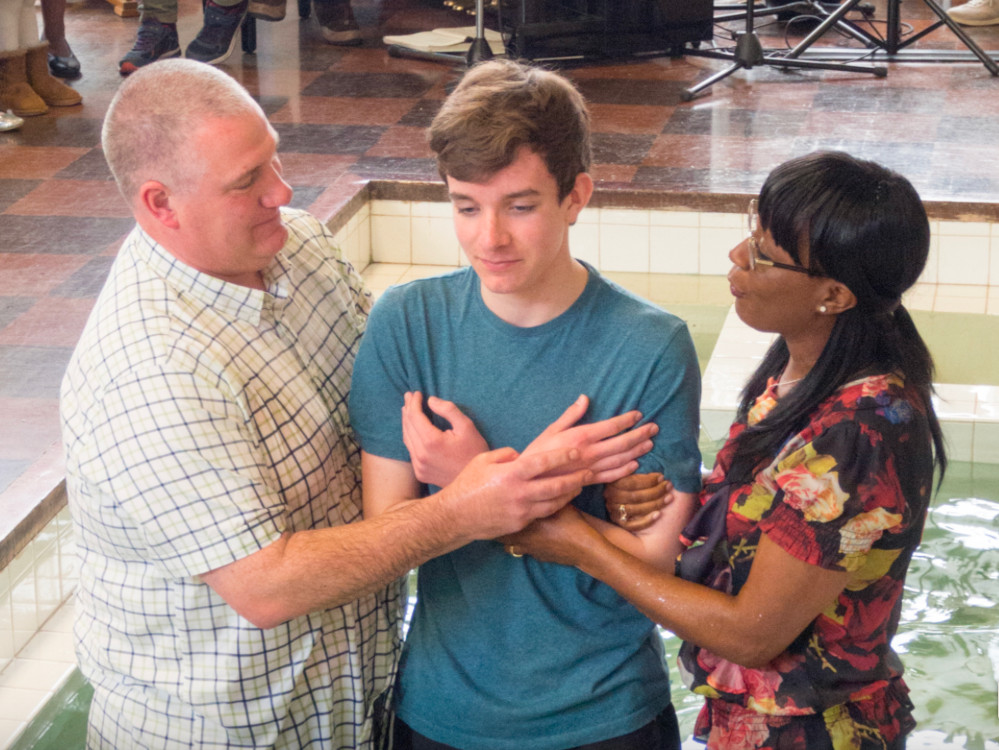In a much-debated vote, opposition to same-sex marriage and a Baptist tradition of church autonomy were the choices facing NSW/ACT Baptists.
The NSW & ACT Baptist Association’s Assembly (church parliament) has strengthened their commitment to traditional marriage by adopting a new “position statement.”
“Marriage is a covenant relationship ordained by God as a lifelong faithful union of one man and one woman. Sexual intimacy outside such a marriage relationship is incompatible with God’s intention for us as his people,” the new statement says.
In an official account of the meeting, Director of Ministries, Steve Bartlett told The Other Cheek “The Assembly considered recommendations from Assembly Council focused around how affiliated churches and accredited ministers mutually express support for the framework of our shared convictions. The Council was asked by the Assembly last year to bring these. Some of the recommendations were considered and voted on but the Assembly did not have time to consider all of them and was adjourned to a later date.
“Assembly approved position statements on Congregational Government and Local Church Autonomy/Healthy Association which reflect our long-held practices in these areas. It agreed to synthesise our two existing statements on marriage into a single statement. It also approved in-principle motions that churches and accredited ministers need to support it.”
The move to strengthen the commitment to traditional marriage came from motions passed at the 2019 Assembly meeting that asked for churches and ministers to be required to renew their commitment to the Baptist Association’s “basic doctrines, objects and values.” A traditional doctrine of marriage was already included in the association’s value statement.
Because the local church’s autonomy is a core value of Baptists, balancing that principle against a doctrine of marriage and requiring churches and ministers to commit to it was at the centre of discussion among the Baptists.
The Assembly Council motions proposed a solution of endorsing “position statements” about marriage, church autonomy, and “healthy association’ between churches. These were passed according to Bartlett’s report.
Detailed motions of how often different types of churches and classes of ministers would need to affirm the position statements may not have been reached, Bartlett notes but significantly an in-principle approval of enforcing support for the statement on marriage was passed. This means that churches and ministers who disagree with the stemnet will have to leave the association. But they will leave with church property – unlike some other denominations the Baptist Association is voluntary.
A key motion that would have required a two-thirds majority to pass the substantive motions was lost.
Motions to establish the statement of marriage and the principle that ministers and churches need to support it, and the church autonomy statements of principle were listed early in the meeting agenda. Motions dealing with the timing of statements of support and how they would be handled, including disaffiliation were to come later. It was a full agenda for a one-day meeting and it is not surprising that not every motion was dealt with.
Baptists who agree with Melbourne Baptist blogger Murray Campbell that
“Affirming [traditional] marriage should not be a controversial issue among churches, and it is a sad indictment on churches that there is any dispute or disagreement here. To believe that God designed marriage to be between one man and one woman and that all other sexual relationships are sinful is doing nothing more than believing what Jesus taught and what the Apostles affirmed.”
will be happy with the result.
Other Baptists who agree with Morling College lecturer Michael Frost who argued in a personal capacity that
“I’ve referred to our group of churches as an association or a denomination, but in a lot of our correspondence we call ourselves a “family of churches.” I like that. Families are comprised of people who can disagree (sometimes wildly) on a whole host of issues, but who are bound together in love and by shared history. We don’t cast out a son or daughter or even crazy Uncle Charlie if they happen to disagree with the rest of us. When our differences on a single issue cloud our ability to see that love and shared history, we lose something very important. In fact, forgetting that sense of family is downright dangerous to the mission of the church.”
are disappointed.
The Baptist Assembly, in considering how to strike a balance between the principles of local church autonomy and adopting a position in favour of traditional marriage passed motions supporting both. In the view of the Assembly, both principles can sit side-by-side and are not incompatible.
Motions to have a quota for women on Baptist boards, and to develop a plan for better female participation at all levels were passed by the Assembly.

